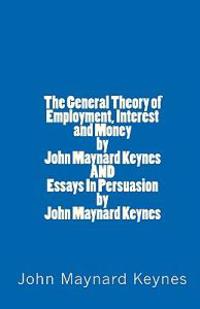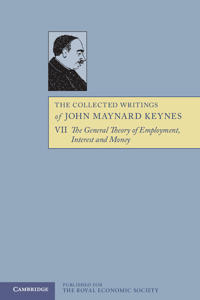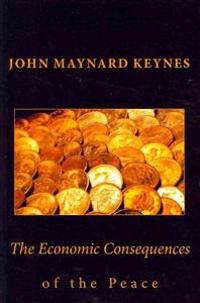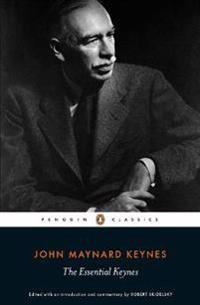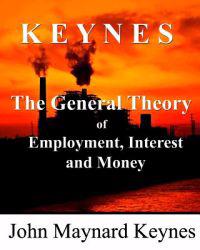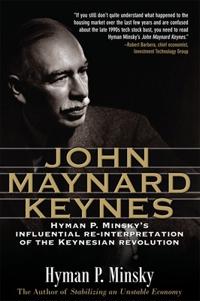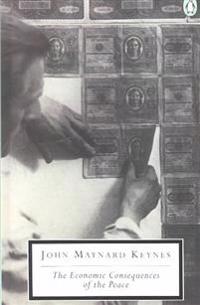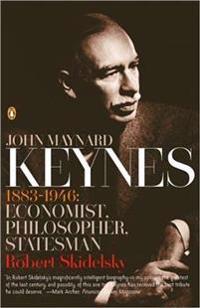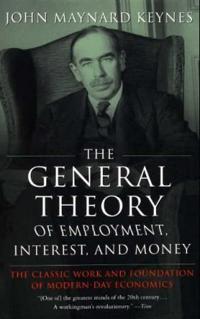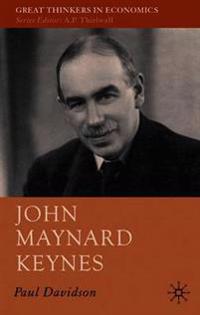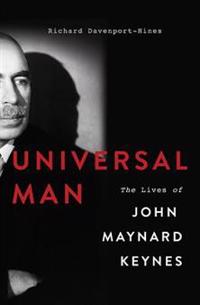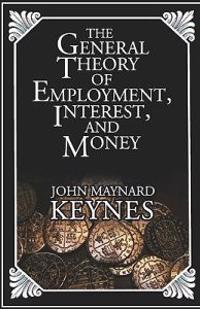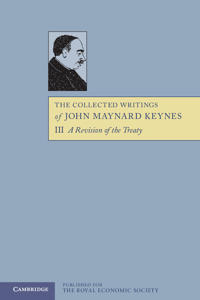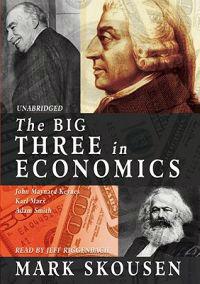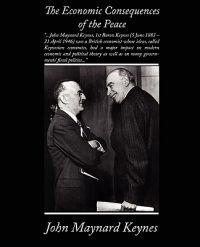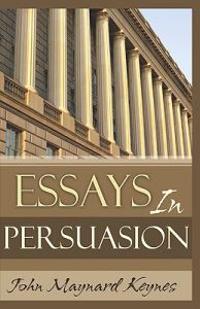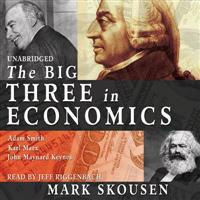The Collected Writings of John Maynard Keynes (Pocket)
avJohn Maynard Keynes
ISBN: 9781107617162 - UTGIVEN: 2012-11-08This volume focuses on the final stages of discussions that brought the International Monetary Fund and World Bank to birth.[...]
The Collected Writings Of John Maynard Keynes (Pocket)
avJohn Maynard Keynes
ISBN: 9781107633773 - UTGIVEN: 2012-11-08Contains all the principal papers Keynes wrote during 1914 to 1919 and his contributions to thinking about post-war reparations and inter-allied debts.[...]
The Collected Writings Of John Maynard Keynes (Pocket)
avJohn Maynard Keynes
ISBN: 9781107651562 - UTGIVEN: 2012-11-08This volume focuses relief and reconstruction, most notably the Beveridge programme for social insurance and the policy of full employment.[...]
The Collected Writings Of John Maynard Keynes (Pocket)
avJohn Maynard Keynes
ISBN: 9781107658066 - UTGIVEN: 2012-11-08A landmark text on the logical foundations of probability. The essence of Keynes's approach remains important among philosophers today.[...]
The Collected Writings of John Maynard Keynes (Häftad)
avJohn Maynard Keynes
ISBN: 9781107673731 - UTGIVEN: 201211In 1936 Keynes published the most provocative book written by any economist of his generation. The General Theory, as it is known to all economists, cut through all the Gordian Knots of pre-Keynesian discussion of the trade cycle and propounded a new approach to the determination of the level of eco[...]
The Collected Writings Of John Maynard Keynes (Pocket)
avJohn Maynard Keynes
ISBN: 9781107696648 - UTGIVEN: 2012-11-08This volume covers aspects of Keynes's involvement in the management of Britain's war economy from 1939 to 1946.[...]
John Maynard Keynes: The Economic Consequences of the Peace (Häftad)
avJohn Maynard Keynes
ISBN: 9781452878478 - UTGIVEN: 201005The Essential Keynes (Pocket)
avJohn Maynard Keynes, Robert (EDT) Skidelsky, Robert (INT) Skidelsky
ISBN: 9781846148132 - UTGIVEN: 2016-01This book was edited with an introduction by Robert Skidelsky. "Many of the greatest economic evils of our time are the fruits of risk, uncertainty, and ignorance." (John Maynard). Keynes was the most influential economist, and one of the most influential thinkers, of the twentieth century. He overt[...]
The General Theory of Employment, Interest and Money (Häftad)
avJohn Maynard Keynes, John McClure
ISBN: 9780984061402 - UTGIVEN: 2009-06In 1936 Keynes published the most provocative book written by any economist of his generation. Arguments about the book continued until his death in 1946 and still continue today. This new edition, published 70 years after the original, features a new introduction by Paul Krugman which discusses the[...]
John Maynard Keynes (Häftad)
avHyman P. Minsky
ISBN: 9780071593014 - UTGIVEN: 200805"Today, Mr. Minsky's view [of economics] is more relevant than ever."- The New York Times "Indeed, the Minsky moment has become a fashionable catch phrase on Wall Street."-The Wall Street Journal John Maynard Keynes offers a timely reconsideration of the work of the revered economics icon. Hyman Min[...]
The Economic Consequences of the Peace (Häftad)
avJohn Maynard Keynes, Robert Lekachman
ISBN: 9780140188059 - UTGIVEN: 199501John Maynard Keynes, at the time a rising young economist, abruptly resigned his position as adviser to the British delegation negotiating the peace treaty ending World War I. Frustrated and angered by the Allies' focus on German war guilt, Keynes predicted that the vindictive reparations policy, wh[...]
John Maynard Keynes: 1883-1946: Economist, Philosopher, Statesman (Häftad)
avRobert Skidelsky
ISBN: 9780143036159 - UTGIVEN: 200508Robert Skidelsky's three-volume biography of John Maynard Keynes has been acclaimed as the authoritative account of the great economist-statesman's life. Here, Skidelsky has revised and abridged his magnum opus into one definitive book, which examines in its entirety the intellectual and ideological[...]
The General Theory of Employment, Interest, and Money (Häftad)
avJohn Maynard Keynes
ISBN: 9780156347112 - UTGIVEN: 196505Keynes profoundly influenced the New Deal and created the basis for classic economic theory. "I can think of no single book that has so changed the conception held by economists as to the working of the capitalist system" (Robert L. Heilbroner). Index.
[...]John Maynard Keynes (Häftad)
avPaul Davidson
ISBN: 9780230229204 - UTGIVEN: 200904Now that every politician is calling for Keynesian remedies isn't it time for you to learn what Keynes's analysis is all about? The current global economic crisis has been caused by the de-regulation of financial markets over the last three decades. Yet, orthodox economic theory during this period [...]
Universal Man: The Lives of John Maynard Keynes (Inbunden)
avRichard Davenport-Hines
ISBN: 9780465060672 - UTGIVEN: 2015-05
In "Universal Man," noted biographer and historian Richard Davenport-Hines revives our understanding of John Maynard Keynes (1883-1946), the twentieth century s most charismatic and revolutionary economist. Keynes helped FDR launch the New Deal, saved Britain from financial crisis twice over the[...]The General Theory of Employment, Interest, and Money (Häftad)
avJohn Maynard Keynes
ISBN: 9780979905254 - UTGIVEN: 200812The Collected Writings of John Maynard Keynes (Häftad)
ISBN: 9781107662858 - UTGIVEN: 2012-11Keynes published The Economic Consequences of the Peace in December 1919. Over the next two years events moved rapidly and by the late autumn of 1921 a sequel was needed. While Keynes's views had not changed, any critical observer required a review of the new facts and materials. That is what A Revi[...]
The Big Three in Economics: John Maynard Keynes, Karl Marx, Adam Smith (Övrigt)
avMark Skousen
ISBN: 9781433200939 - UTGIVEN: 2007-03The Economic Consequences of the Peace (Häftad)
avJohn Maynard Keynes
ISBN: 9781438503967 - UTGIVEN: 200810The General Theory of Employment, Interest and Money (Häftad)
avJohn Maynard Keynes
ISBN: 9781448671854 - UTGIVEN: 2009-08The Big Three in Economics: Adam Smith, Karl Marx, and John Maynard Keynes (CD-bok)
avMark Skousen
ISBN: 9781470824655 - UTGIVEN: 201207

